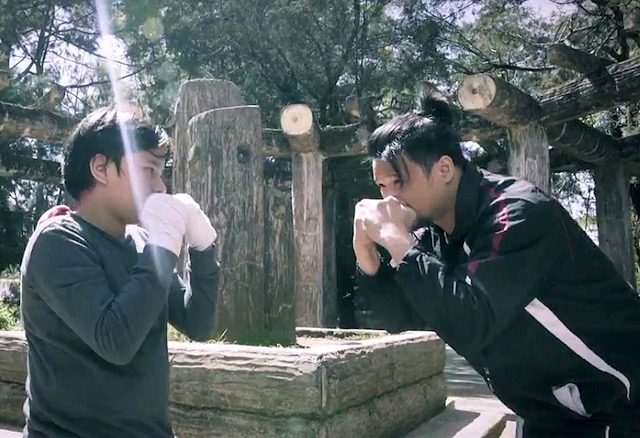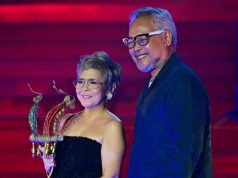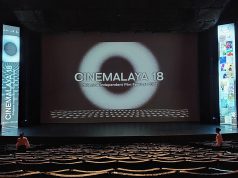The most endearing thing about “Kiko Boksingero” is how it is so unafraid, as a film, to tell a simple story in a very simple manner. By being straightforward and removing unnecessary dramatics, “Kiko Boksingero” finds its footing early and eventually rises beyond expectations.
At the start of the film, Kiko has already lost his mother, and we go through his everyday routine with his yaya, Diday. It’s just the two of them in a big empty house in Baguio, as plans are being made for Kiko to eventually move to America to be with relatives.
In their daily lives, in the little details of everyday living, we can see that Kiko misses his mother and that Diday is more than willing to take on the responsibility of raising this boy. Unknown to her, Kiko visits his absent father’s abandoned house and trains himself using the discarded boxing equipment there.
But his father suddenly returns to Baguio, and they start to build a relationship and bond over their shared interest in pugilism.
The film revels in its simplicity. It makes no grand gestures to explain why Kiko’s father is estranged or how his mother died. These are not as important as what it is that Kiko is yearning for now, in the present, which his father can give him and Diday cannot.
“Kiko Boksingero” dwells in minutiae and by not overdramatizing them, it builds an energy of emotions that come and hit you when the film makes it way to the final act.
The pacing is slow. Running for only 79 minutes, it feels longer, like it is unsure of where it is going but every scene is filled with charm and grace.
Director Thop Nazareno is in complete control here with an elegant use of just the right music and very precise production design by Ericson Navarro. Without having to explain much, we see the disparity in the worlds of Kiko and his father and from there we can make assumptions about the backstory.
Raising the bar further are the trio of Noel Comia Jr., Yayo Aguila, and Yul Servo, who are giving amazing performances that are pitch-perfect. There’s nothing unnecessary here in their portrayals.
Grounding this film is Noel Comia Jr.’s charisma and an approach that never begs for sympathy. Yayo Aguila provides the heart, while Yul Servo gives the film an unpredictable edge.
What makes “Kiko Boksingero” so enjoyable is its confidence in its storytelling. It reveals just what you need to know and when you need it, and it really felt like you were watching these lives unfold. It feels inevitable and organic without hints of manipulation. It is simple and in that simplicity, it elevates itself into something wonderful, and I was teary-eyed by the end of the film.
Such a short, simple, lovely little film and yet it packs such a wallop.
“Kiko Boksingero” is a full-length feature film entry in the ongoing Cinemalaya Film Festival and is now screening at the Cultural Center of the Philippines. For screening schedules at the CCP, visit www.cinemalaya.org.
In Ayala Cinemas, watch it at Glorietta 4, Greenbelt 1, TriNoma, Fairview Terraces, U.P. Town Center, and now in Pampanga at Marquee Mall. For screening schedules, visit www.sureseats.com.










